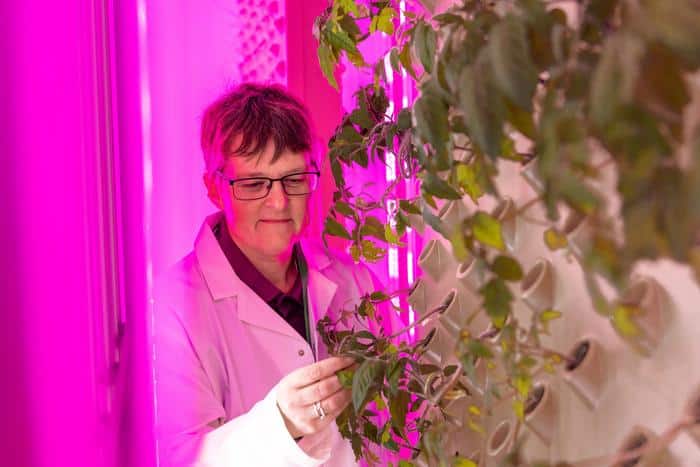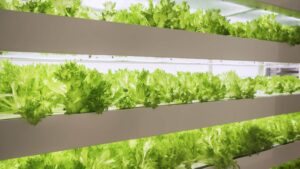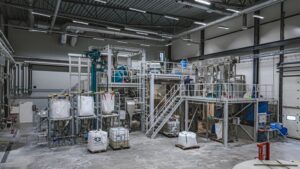A $3.7 million state-of-the-art plant laboratory is set to position researchers at the forefront of the battle against climate change. It will also enable the creation of crops suitable for the future’s changing atmosphere.
The University of Essex’s new flagship facility will empower scientists to adapt plants to thrive in hotter, drier conditions, addressing the growing threat to food security.
It boasts a cutting-edge commercially standard vertical farm, an indoor field that replicates real environments anywhere in the globe, and suites that imitate a warming world — with researchers able to raise CO2 concentration and temperature levels at will, according to a press release.
Additionally, computerized plant scanning technology will be utilized to monitor plant growth, accurately pinpointing changes in photosynthesis.
This research will be supported by AI and robotics, driving the development of innovative ideas, technologies, and strategies to anticipate the evolving dynamics of agriculture and the environment.
The release notes that with the human population expected to reach 9.7 billion by 2050, a step-change in agricultural productivity, sustainability and resilience is needed to keep up with food demand.
Secure Everyone’s Future
World-leading biologist Professor Tracy Lawson is spearheading the project, which builds on her decades of pioneering work into plant productivity, improving photosynthetic process and boosting crop water use.
“This amazing facility places plant research at Essex in a unique position to be able to grow and select plants for tomorrow’s atmosphere today,” Lawson said.
“This cutting-edge lab will put us at the forefront of research into how we can help plants change and adapt to climate change — helping secure everyone’s future. This state-of-the-art facility will help the world cope with a growing population by ensuring future food security by developing climate resilient plants.”
The university will be the first in the UK to have a commercial standard vertical farm and is the only lab in the nation to combine all the facilities.
The Smart Technology Experimental Plant Suite (STEPS) facility will develop strategies to optimise plant performance whilst working towards net zero. This will allow researchers to foster connections in the community and develop relationships in agriculture, horticulture, and technology businesses.
It builds on the work of the influential and pioneering Essex Plant Innovation Centre (EPIC), the release notes.
EPIC brings farmers, technologists, and scientists together to improve the resilience of crops to drought, increase yields and secure the food chain during extreme weather scenarios. Students will play a pivotal role in this initiative, collaborating with the University’s globally recognized researchers to develop and conduct experiments. This provides them with a distinctive undergraduate experience and valuable training opportunities.
The STEPS lab was part funded by the Wolfson Foundation who pledged $1.2million to support its development.
“Race Against Time”
“We are in a race against time to futureproof agriculture against climate change, not just in the UK but globally,” Paul Ramsbottom, chief executive of the Wolfson Foundation said. “The University of Essex is leading the way in critical research and development to support innovation and sustainability in food production, and we are delighted to be funding the technology platforms that will help them achieve this.”
This project will include long-time industry collaborator Innovation Agritech Group (IAG). The British company installed the commercial standard vertical farm unit, deploying a full scale GrowFrame360 – which is unique to UK universities.













